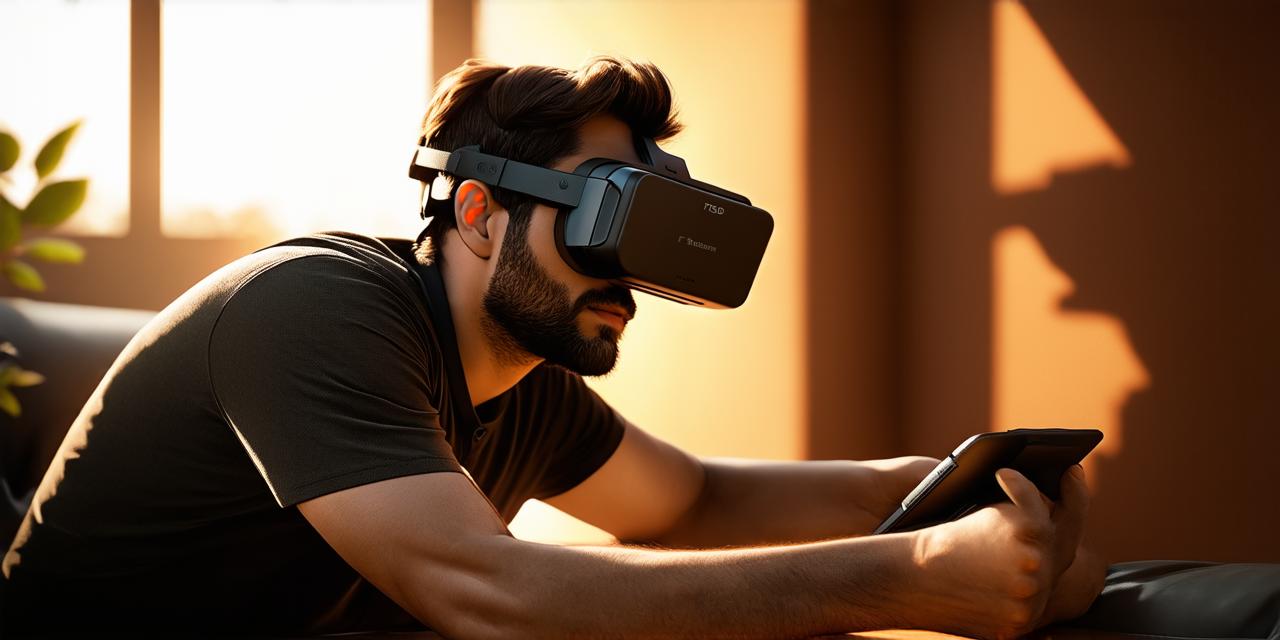Post-traumatic stress disorder (PTSD) is a mental health condition that can develop in individuals who have experienced or witnessed a traumatic event. The symptoms of PTSD can range from intrusive thoughts and flashbacks to avoidance, anxiety, and depression.
Virtual Reality Therapy: An Overview
Virtual reality therapy is a form of therapy that utilizes computer-generated simulations to create a safe and controlled environment for individuals to confront their fears and traumas. VR technology allows therapists to create highly realistic and immersive experiences that can be tailored to the specific needs of each patient. In PTSD treatment, VR therapy is often used in conjunction with traditional therapy methods to enhance the effectiveness of the treatment.
The Science Behind Virtual Reality Therapy for PTSD
Research has shown that VR therapy can be an effective treatment option for PTSD. A study published in the Journal of Traumatic Stress found that individuals who underwent VR exposure therapy for PTSD showed significant reductions in symptoms compared to those who received traditional exposure therapy or no treatment at all.
Another study published in the Journal of Consulting and Clinical Psychology found that individuals who underwent VR exposure therapy for PTSD were more likely to engage in activities outside of their homes and had better social functioning than those who received traditional exposure therapy.
The benefits of VR therapy for PTSD are thought to be related to the fact that it allows individuals to confront their fears and traumas in a controlled and safe environment. By gradually exposing patients to increasingly intense stimuli, VR therapy can help them desensitize to triggers and develop coping strategies for managing symptoms.
Case Studies: The Effectiveness of Virtual Reality Therapy for PTSD
One example of the effectiveness of VR therapy for PTSD is a study conducted by the University of Oxford. In this study, individuals with PTSD were randomly assigned to either receive traditional exposure therapy or VR exposure therapy. Those who underwent VR exposure therapy showed significant reductions in symptoms compared to those who received traditional exposure therapy.
Another example is the work of Dr. Mary Beth Williams, a VR therapist who specializes in treating PTSD. In her book “Virtual Therapy for Trauma: A Guide for Clinicians and Patients,” she describes the successful use of VR therapy for a variety of trauma-related disorders, including PTSD.
The Role of Virtual Reality Therapy in Managing Chronic PTSD
Virtual reality therapy can also be useful for managing chronic PTSD, which is a type of PTSD that persists for a long period of time despite treatment. In these cases, traditional therapy methods may not be as effective due to the complexity and severity of symptoms.
By providing a safe and controlled environment for individuals with chronic PTSD to confront their fears and traumas, VR therapy can help them develop coping strategies and improve overall functioning. Additionally, VR therapy can be used in conjunction with other treatment methods, such as medication and cognitive behavioral therapy, to enhance the effectiveness of the treatment.
The Future of Virtual Reality Therapy for PTSD
As virtual reality technology continues to evolve, it is likely that VR therapy will become an increasingly popular treatment option for PTSD. The use of VR technology in PTSD treatment has already shown significant promise, and further research is needed to fully understand the potential benefits of this approach.
Conclusion: The Use of Virtual Reality Therapy for PTSD
In conclusion, virtual reality therapy is a promising treatment option for PTSD. By providing a safe and controlled environment for individuals to confront their fears and traumas, VR therapy can help them develop coping strategies and improve overall functioning. The use of VR technology in PTSD treatment has already shown significant promise, and further research is needed to fully understand the potential benefits of this approach. As virtual reality technology continues to evolve, it is likely that VR therapy will become an increasingly popular treatment option for PTSD.
